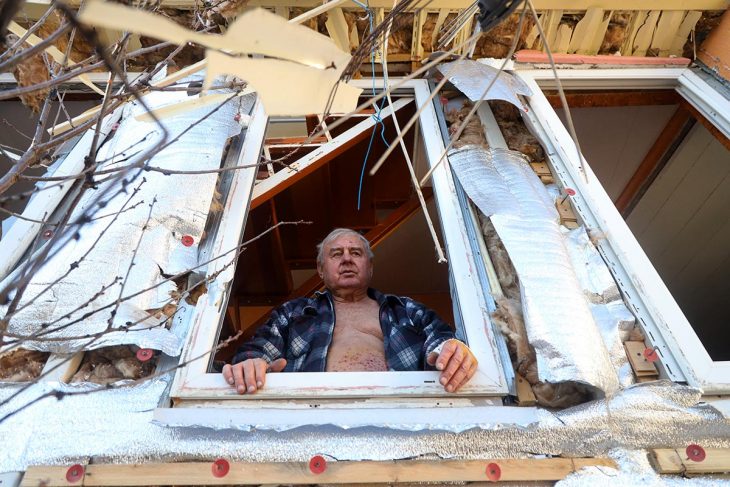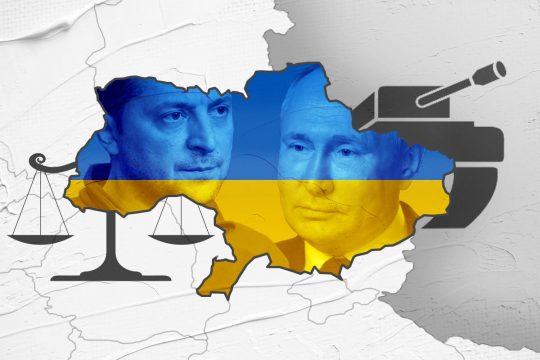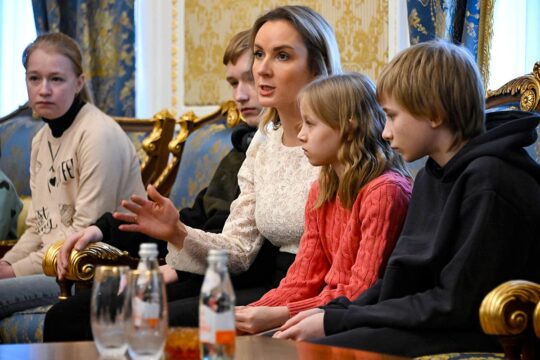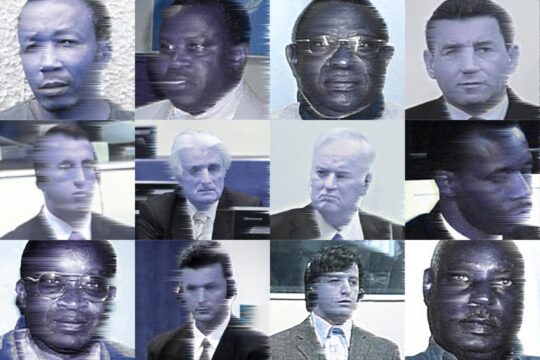Ukraine, which has been remarkably quick and adept in its “lawfare” strategy after its invasion by the Russian army on February 24, filed an application against Russia at the European Court of Human Rights (ECHR) on February 28, on grounds of “massive human rights violations being committed by the Russian troops in the course of the military aggression against the sovereign territory of Ukraine”. Ukraine requested the court to take interim measures, which means “urgent measures which apply only where there is an imminent risk of irreparable harm”, according to the ECHR practice.
The very next day the Court called on the Russian government to “refrain from military attacks against civilians and civilian objects, including residential premises, emergency vehicles and other specially protected civilian objects such as schools and hospitals, and to ensure immediately the safety of the medical establishments, personnel and emergency vehicles within the territory under attack or siege by Russian troops”.
As expected, Russia has taken no notice of the ECHR’s interim measures, so they remain largely symbolic. They also are only the first step of a long process, warns Marko Milanovic, co-director of the Human Rights Law Centre at Nottingham University in the United Kingdom. “Normally the Court would proceed to examine the admissibility of the case, and then its merits,” he told Justice Info. “Both stages would take years.”
What the ECHR does
The European Court of Human Rights was set up in Strasbourg, France, by the Council of Europe member states in 1959. It deals with individual or state applications alleging violations of the 1950 European Convention on Human Rights, which Russia and Ukraine both ratified. Although it can take cases filed by individuals, it only rules on compliance by states and government authorities, not individuals. The Court’s decisions are binding, but it has no enforcement mechanism.
The nature of acts that the Court considered in its March 1 urgent ruling on Russia’s military action in various parts of Ukraine was that they notably give rise to a real and continuing risk of serious violations of Ukrainian civilians’ “right to life”, “right to respect for private and family life”, and of infringing the “prohibition of torture and inhuman or degrading treatment or punishment”. These are all enshrined in the European Convention on Human Rights.
ECHR “does not deal with crimes”
How do such violations differ from war crimes or crimes against humanity, which, under the Statute of the International Criminal Court (ICC) include murder and torture?
“The ECHR does not deal with ‘crimes’ of any kind,” explains Michal Kowalski, professor of international public law at the Jagiellonian University in Poland and an ad hoc judge for the ECHR. “The ECHR has been established under the European Convention on Human Rights to ensure the observance” of that Convention. The jurisdiction of the ICC is different, he told Justice Info, since it’s about international criminal responsibility of individuals (and not States) for crimes listed and defined in its Statute. In the case of Ukraine, it is mainly about war crimes, he says.
“In armed conflicts (beside international humanitarian law prohibiting war crimes), norms guaranteeing fundamental human rights apply simultaneously as well,” continues Kowalski. “Some arbitrary actions in an armed conflict might be regarded as acts violating fundamental human rights (right to life; prohibition of torture). And those violations may become a subject of procedures initiated by an individual or interstate complaint before the ECHR under the European Convention on Human Rights.”
And so, he concludes, “the same acts committed during the armed conflict in Ukraine may be defined as violations of human rights under the ECHR and simultaneously as war crimes under international humanitarian law and the ICC Statute. But they lead to different kinds of responsibility under international law.”
Russia expelled from Council of Europe
On February 25, 2022, a day after the invasion, Russia was suspended from its rights of representation in the Council of Europe, under whose auspices the ECHR works, following the invasion of Ukraine. On March 10, Moscow announced that it would no longer participate in the Council of Europe and on March 15 it launched a withdrawal procedure, effective December 31, 2022. On March 16, the Council of Europe decided to expel Russia with immediate effect. Russia has also signalled its intention to denounce the European Convention on Human Rights. In a resolution on March 23, the Council said Russia “will cease to be a High Contracting Party to the European Convention on Human Rights on 16 September 2022”.
Will this affect the case before the ECHR? “We do not know how Russia will react following the cessation of its membership at the Council of Europe,” says Ireneusz Kaminski, chair of European and international law at the Polish Academy of Sciences in Warsaw. “The Convention denunciation period ends on September 15, 2022. We are entering a new legal area, as the Russian withdrawal (cessation of its membership) is something new happening in the Council of Europe framework.”
“Nominally the Court can proceed with evaluation of all of the cases filed against Russia, and even future cases that deal with violations that were committed while Russia was an ECHR state party,” says Milanovic of Nottingham University. “But Russia will not participate in the proceedings, the Russian judge will likely not sit on the bench, and Russia certainly won’t comply with any judgments rendered. The Court would not be able to conduct the normal adversarial proceedings but would need to conduct them in the absence of the respondent.” He says we don’t yet know what the Court will do, “but it’s possible that it will freeze the vast majority of Russian cases while proceeding with some of the most important ones, including the interstate cases”.
No hope of compliance for now
The ECHR is already dealing with a high number of cases brought against Russia. Many are brought by individuals, including Russian opposition leader Alexei Navalny, but there are also a number brought by states, including Ukraine for the 2014 annexation of Crimea, and Ukraine and the Netherlands for the downing of the MH17 airliner over eastern Ukraine the same year. “There are as many as nine interstate cases of Ukraine v. Russia pending in the ECHR, as well as the recent one, which is the tenth,” says Kaminski. “In one of those cases (Crimea) the Court has already rendered its decision on admissibility, which is very promising, and now the case is being considered on its merits.”
Russia has continued its invasion despite orders from both the ECHR and the UN’s International Court of Justice. Any legal victories for Ukraine look set to remain largely symbolic at least in the short term.
Milanovic thinks the court’s decisions will have no effect on Russia’s behaviour now. But “if Russia somehow transitions towards democracy in the mid-to-long term and seeks to re-join the Council of Europe, then compliance with ECHR judgments will be indispensable in that process”, he says.
“Personally my expectations regarding Russia are very pessimistic,” agrees Kaminski. “It will ignore the legal proceedings, not only in Strasbourg but also at other international courts. Nevertheless, such courts can take their decisions, and I hope they will. Non-execution of the decisions and non-participation in the proceedings would demonstrate that Russia is a pariah in the international community. But does Russia care?”








